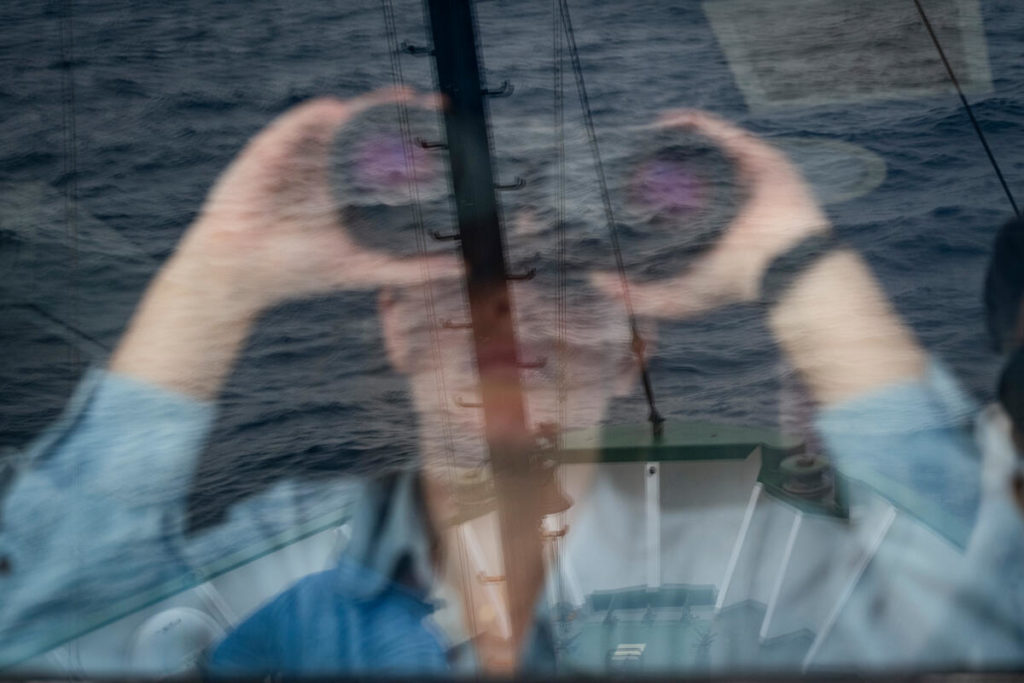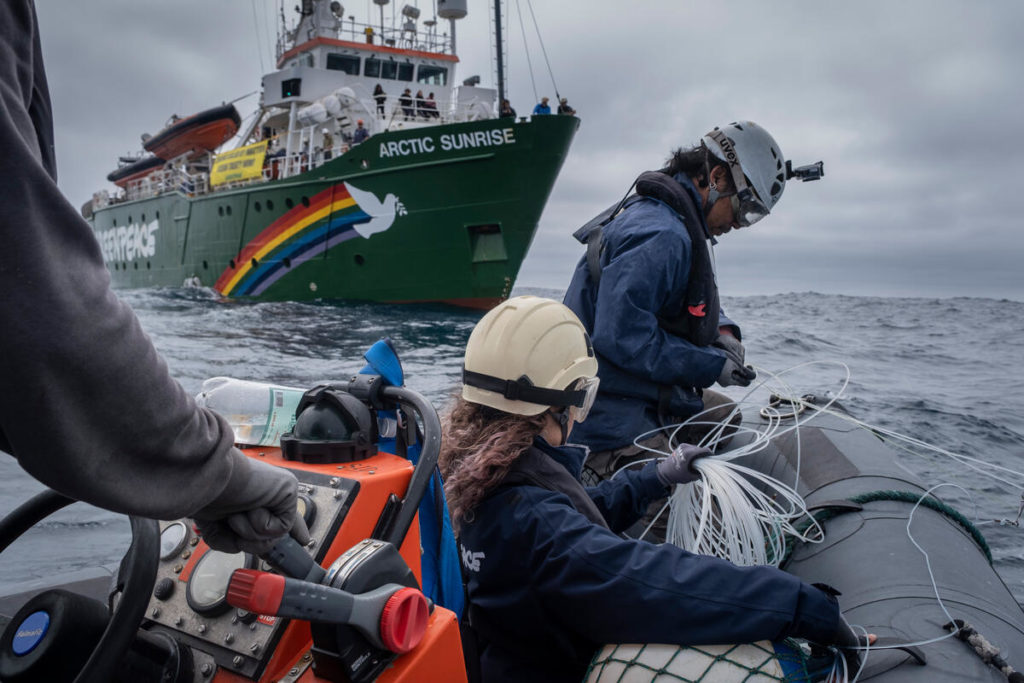GREENPEACE ACTIVISTS ON BOARD THE ARCTIC SUNRISE HAVE CONFISCATED FISHING GEAR FROM TWO EUROPEAN INDUSTRIAL LONGLINE FISHING VESSELS IN THE NORTH ATLANTIC. ONE WAS OPERATING IN A MARINE PROTECTED AREA.
The activists seized 30.2km of longline, just 2.5% of the total length, including 286 hooks. They released a blue shark, a near threatened species, seven swordfish and other marine life caught on the lines.
“We could only confiscate a tiny proportion of the longlines, but what we found makes clear the horrors of industrial fishing. What’s the point in protecting a place if environmental destruction like this is still allowed? Protected areas like this are a perfect example of the broken status quo: protected on paper, but not on the water,” said Greenpeace España oceans campaigner Maria José Caballero who was on board the Arctic Sunrise.

Industrial fishing in the Marine Protected Area, the Milne Seamount Complex, makes clear the challenges in properly protecting areas in international waters. Longlining is legal here, but any industrial fishing will impact the ecosystem. This lack of protection from longlining is another example of why a strong Global Ocean Treaty is needed to properly protect areas of the high seas from industrial fishing.
The longliners, from Spain, were fishing for sharks and swordfish. The fishery has morphed to rely on shark bycatch to remain profitable. These vessels use longlines sometimes over a 100km long, with thousands of hooks attached.

“The EU and its member states like Spain claim they are champions of ocean protection, while their fishing fleets cause environmental harm at sea. It’s hypocrisy on an industrial scale. We need a strong Global Ocean Treaty to be finalised this August, which changes how high seas fishing is managed, to give the oceans a chance to recover,” commented Maria José Caballero further.
Greenpeace is calling on leaders to finalise a Global Ocean Treaty at UN negotiations in August. Failure to agree on a strong treaty will make it almost impossible to deliver on 30×30: 30% of the world’s oceans fully protected by 2030. Scientists say this is the minimum required to give the oceans space to recover.
A Greenpeace España and Greenpeace UK investigation released in July revealed that EU fleets also fish in shark nursery grounds.



